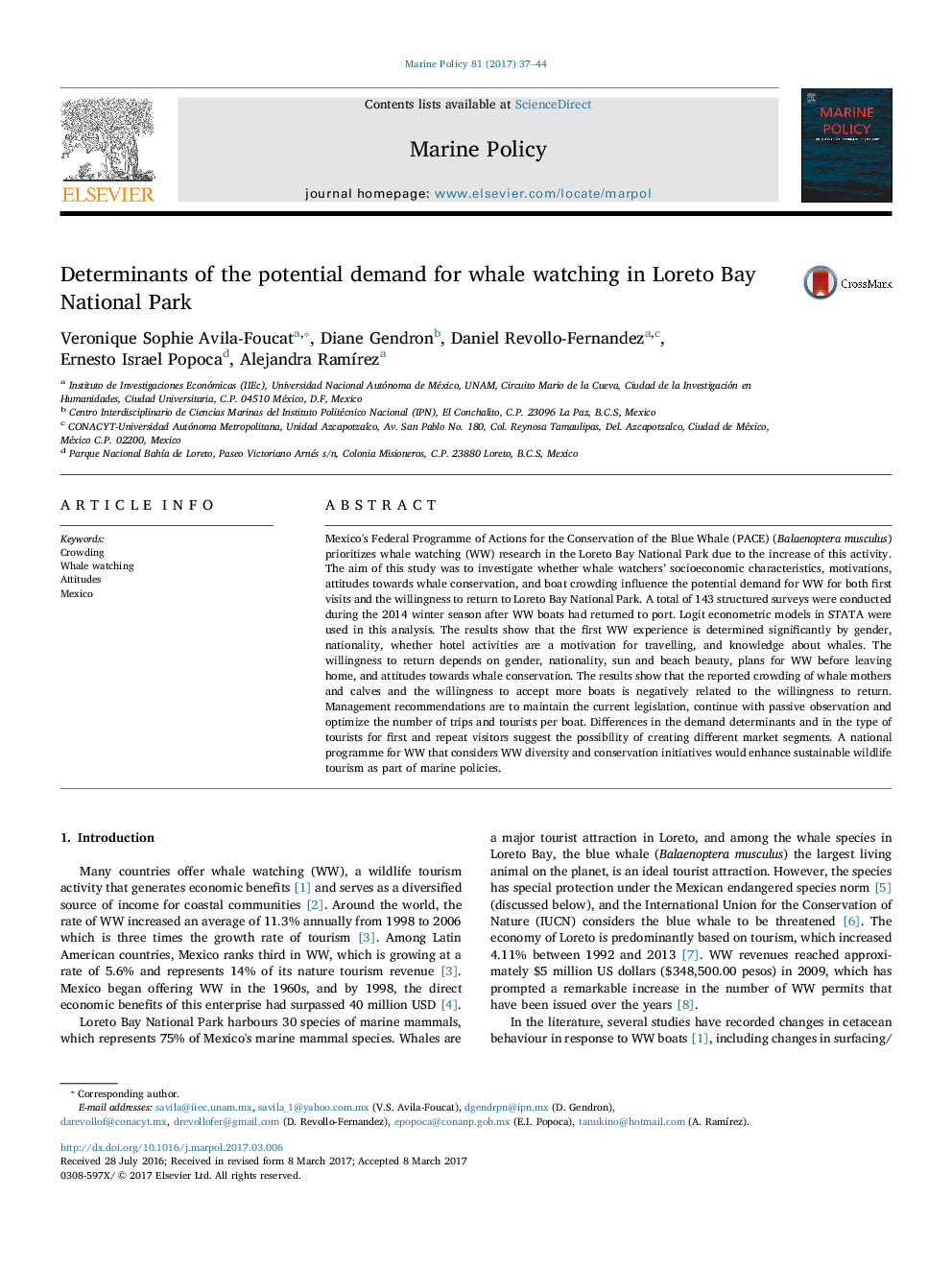ترجمه فارسی عنوان مقاله
عوامل تعیین کننده تقاضای بالقوه برای تماشای نهنگ در پارک ملی لورتو خلیج
عنوان انگلیسی
Determinants of the potential demand for whale watching in Loreto Bay National Park
| کد مقاله | سال انتشار | تعداد صفحات مقاله انگلیسی |
|---|---|---|
| 160149 | 2017 | 8 صفحه PDF |
منبع

Publisher : Elsevier - Science Direct (الزویر - ساینس دایرکت)
Journal : Marine Policy, Volume 81, July 2017, Pages 37-44
ترجمه کلمات کلیدی
پرتاب کردن تماشای نهنگ، نگرش های، مکزیک،
کلمات کلیدی انگلیسی
Crowding; Whale watching; Attitudes; Mexico;

